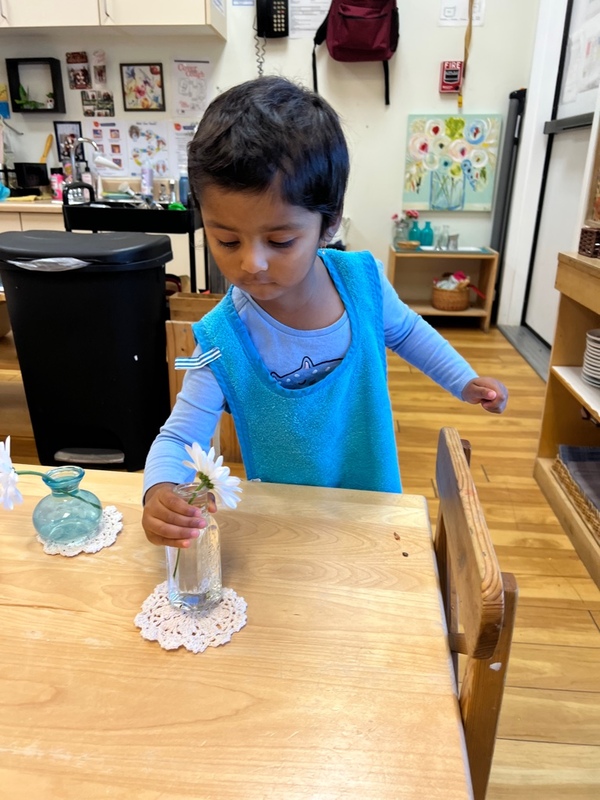(858) 759-0631
Children have been enjoying singing and reading books that talk about emotions. For toddlers, it's hard to control emotions, especially frustration, anger, and sadness. Most of the time, they will cry, scream, and even throw things. As adults, we can feel frustrated and upset, but instead of seeing this as a difficult time, we can see it as an opportunity to guide them. We can give validation to their feelings but, at the same time, establish limits. Consistency in our words and actions is critical when we talk to them.
Independence
During the toddler years, children develop physical and cognitive independence, from undressing to feeding themselves. Toddlers are motivated to learn basic daily life skills. At the same time, when a child wants to do it all by themselves, they may tell you, "No, Mommy," whether with words or body language. That's why observation is so important to know your child's needs. Toddlers want to be independent, even if you may not be quite ready for it. A Montessori environment is carefully prepared so the young child can learn to be independent relatively quickly. Everything is a child's size, and everything the children need is accessible. What they do not know yet to do, they are shown with precise, slow presentations. In an environment like this, many of the typical challenges of toddlerhood noticeably diminish.
At home, it may be time to shift away from caring for your child's every need to include them as an active participant in daily life tasks. Consider little changes you can make at home, such as letting your child choose the clothing they will wear every day (offer two choices), creating small spaces around the house (such as a small shelf or furniture) where they can pick up activities or toys to work with, and setting up a space for your toddler shoes where they can quickly get them with no need to ask for your help.
Toileting
Toileting is always an important topic to talk about with our children.
Most of our children are working on this milestone right now, and we're reading books about toileting. For example, "Like a potty for me" and "Once upon a potty." Thank you so much to all the families for working hard during this process. It's not easy and requires much physical and mental effort from our toddlers, who are working hard. They're all doing so well! Keep up the hard work at home, remember to have a schedule and routine for toileting, and take them to the bathroom during transitions (before and after eating, before and after sleeping/nap time, before going out, and when you come back home).
Going out with a toddler and working on the toileting process is difficult. An excellent tool to help you is having a potty in your car. In this way, you can invite your child to use it if they need it. Remember, consistency and routine are the keys to success. Try to avoid diapers as much as you can. If your child is having toilet events, it's okay. It's essential to have a consequence. We don't see this as a failure. We see it as an opportunity to work. For example, it is an excellent opportunity for them to work on dressing and undressing (with collaboration). That means we won't do everything for them. It means we guide them to be successful in this area. As adults, you do one step and then invite your child to do the next step. In this way, we avoid frustration from our toddlers by not asking them to do something they cannot accomplish yet. By working with our toddlers with collaboration, we get more cooperation. In this way, they can easily accomplish the task they are working on, like dressing and undressing.
-Ladybug Teacher

